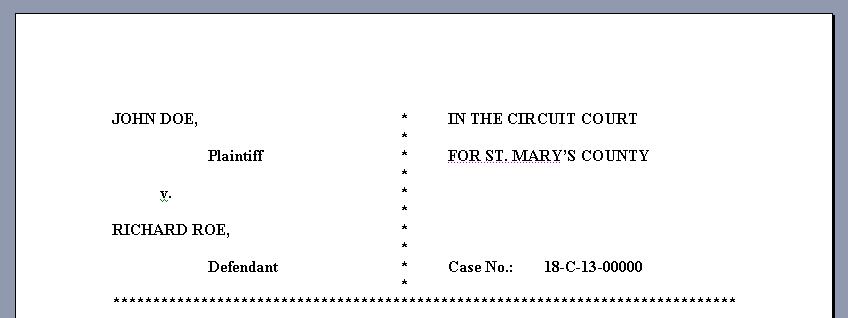
A motion is a request asking the court to give an order that the court or another party must do something. During a hearing or trial, you can make a motion verbally. At any other time, you must make your motion in writing. Your motion must say what you are asking the court to do.
A motion is a formal request asking the court to issue an order that a specific action be taken, either by the court or another party. For example, you can file a motion asking the court to dismiss some or all of the claims in a case (Motion to Dismiss), to exclude certain evidence the other party wants to admit (Motion to Suppress Evidence) or to reschedule a hearing, trial, or other proceeding (Motion for Continuance). You can also file motions asking the court to order the other party to disclose information or evidence relevant to the case (Motion for Discovery), to compel the other party to comply with discovery or already issued orders (Motion to Compel), or to order the other party to refrain from certain actions while the case is pending (Motion for Preliminary Injunction).
During a hearing or trial, you can make a motion verbally. At any other time, you must submit your motion in writing. Your motion must clearly state what you are asking the court to do.
You must file your written motion with the court. You must also serve a copy to the other parties in the case by You must file your written motion with the court and serve a copy to the other parties in the case. You can do this by delivering or mailing a copy of your motion to them. If a lawyer represents another party, you must deliver or mail that party’s copy to their lawyer.
After being served with a motion, the party served can file a written response to the motion with the court. A response must be filed within a set amount of time, usually 15 days. Generally, the court will not decide your motion until the other party has had this chance to respond.
If you are representing yourself, you can file your motion in paper or electronically. If you decide to file a motion electronically, you must e-file all future pleadings and papers with the court.
Read the Rules: Maryland Rules 1-321, ("Service of pleadings and papers other than original pleadings"), 1-322, ("Filing of pleadings, papers, and other items"), and 2-311 ("Motions")
Generally, other parties must send you a copy of any motion they file against you in your case. Read the motion, and if you wish to, write a response to the motion. You must file your response with the court and send the other parties a copy. After being served with a motion, you must file your response with the court within the set time limit, usually 15 days.
NOTE: If the other party served you with a motion by mail, the court will allow you 3 extra days to file your response. In other words, you must usually file your response within 18 days of the date on which the other party mailed you the motion.
In some circumstances, the court may be willing to issue an order shortening or extending the time allowed for filing a response to a motion. To ask the court to shorten or extend the time, you must file an additional motion with the court. Your motion must include a specific reason why the court should grant your request.
This additional motion might be called a “Motion to Extend [or Shorten] Time Requirements to Respond to [Title of Motion].” You must go through all the necessary steps to file and serve this additional motion with the court and serve it on the other parties.
As with any motion, the court may grant your motion to change the deadline, or the court may deny it. If the court issues an order granting your motion, the court may:
RECOMMENDATION: If you are asking for more time to respond to another party’s motion, be sure to file your motion to extend time before the original deadline passes.
Read the Rules: Maryland Rule 1-204 ("Motion to shorten or extend time requirements")

In most cases, after leaving time for the other parties to respond, the court will simply read the motion and response(s) and issue an order. In some cases, the court will schedule a hearing, to give you and the other party a chance to explain your arguments further. In most cases, the court does not have to grant a hearing.
Remember, if you want the court to hold a hearing before deciding your motion or response, you must ask for that. First, the title of your motion or response must state that you are requesting a hearing. Second, in the body of your motion or response, you must request a hearing under the heading “Request for Hearing.”
Read the Rules: Maryland Rule 2-311 ("Motions") and 1-301 ("Form of court papers")
The Maryland State Law Library and many local or Circuit Court law libraries have form books with examples of motions that you can edit to meet your needs. Here are some frequently used Maryland form books:
In addition to these titles, there are also form books with motions that are focused on specific areas of law (family law, landlord-tenant, employment law, etc.). Your local law library will also be able to help you identify these sources.